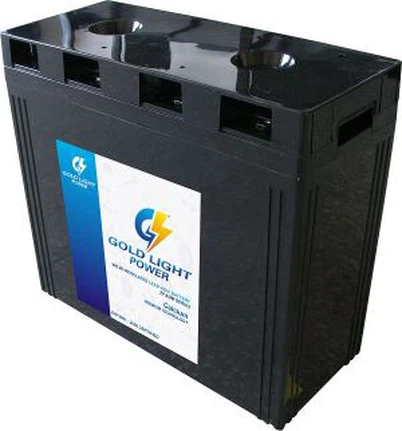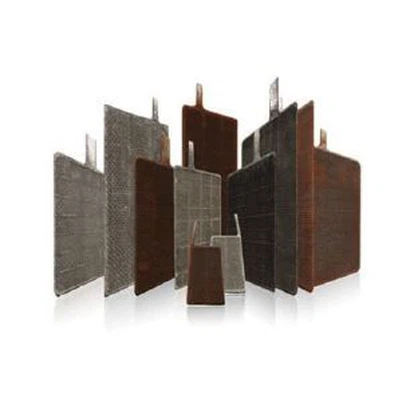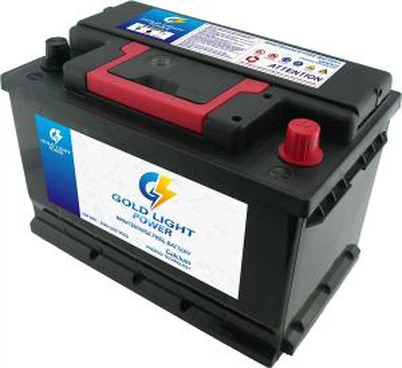Are there any eco - friendly battery options?
Leave a message
In today's world, where environmental concerns are at the forefront of global discussions, the demand for eco - friendly solutions has extended to every aspect of our lives, including batteries. As a battery supplier, I am often asked about the availability of eco - friendly battery options. This blog post aims to explore the various eco - friendly battery choices in the market, their benefits, and how they can be a sustainable alternative for different applications.
The Need for Eco - Friendly Batteries
The traditional batteries, such as lead - acid batteries, have been widely used for decades due to their reliability and relatively low cost. However, they come with several environmental drawbacks. Lead is a toxic heavy metal, and improper disposal of lead - acid batteries can lead to soil and water pollution. Moreover, the production process of these batteries consumes a significant amount of energy and resources.
On the other hand, the increasing popularity of renewable energy sources like solar and wind power has created a need for energy storage solutions that are not only efficient but also environmentally friendly. Electric vehicles (EVs) are also on the rise, and the batteries used in these vehicles play a crucial role in reducing greenhouse gas emissions. Therefore, finding eco - friendly battery options is essential for a sustainable future.


Types of Eco - Friendly Batteries
Lithium - Ion Batteries
Lithium - ion batteries are one of the most well - known eco - friendly battery options. They are widely used in portable electronics, electric vehicles, and renewable energy storage systems. These batteries have a high energy density, which means they can store a large amount of energy in a relatively small and lightweight package.
Compared to lead - acid batteries, lithium - ion batteries have a longer lifespan and require less maintenance. They also have a lower self - discharge rate, which means they can hold their charge for a longer time when not in use. In terms of environmental impact, lithium - ion batteries are generally considered more sustainable because they do not contain toxic heavy metals like lead. However, the extraction of lithium and other materials used in these batteries can have environmental consequences, and proper recycling methods are needed to minimize their impact.
Nickel - Metal Hydride (NiMH) Batteries
Nickel - Metal Hydride batteries are another eco - friendly alternative. They have been used in hybrid electric vehicles and some portable electronics. NiMH batteries offer a good balance between energy density and environmental friendliness. They do not contain cadmium, which was a common component in older nickel - cadmium (NiCd) batteries. Cadmium is a highly toxic metal, and its use in batteries has been restricted due to environmental concerns.
NiMH batteries are more energy - dense than lead - acid batteries and have a longer lifespan. They are also more recyclable than many other battery types, which helps to reduce the amount of waste going to landfills. However, the production of NiMH batteries still requires a significant amount of energy and resources, and the materials used in them need to be sourced responsibly.
Flow Batteries
Flow batteries are a relatively new type of battery technology that shows great promise for large - scale energy storage. These batteries store energy in liquid electrolytes that are stored in external tanks. The advantage of flow batteries is that their energy storage capacity can be easily increased by simply increasing the size of the electrolyte tanks.
Flow batteries are considered eco - friendly because they use non - toxic and abundant materials. For example, some flow batteries use vanadium, which is a relatively common element. They also have a long lifespan and can be cycled (charged and discharged) many times without significant degradation. Additionally, flow batteries can be easily recycled at the end of their life, which reduces their environmental impact.
Our Battery Offerings and Their Eco - Friendliness
As a battery supplier, we understand the importance of providing eco - friendly options to our customers. We offer a range of batteries that are designed to meet different needs while minimizing their environmental impact.
For automotive applications, we have several maintenance - free batteries that are not only reliable but also more eco - friendly compared to traditional lead - acid batteries. For example, our Wholesale Price Mf Car Battery 12v70ah 80D26R Type JIS Standard Automobile Battery is designed to provide high performance with reduced maintenance requirements. These batteries are sealed, which means there is no risk of acid leakage, and they are more efficient in terms of energy conversion.
Our NX120 - 7 12V 80AH Lead Maintenance Free Auto Electric Car Battery For Truck is another great option for heavy - duty vehicles. It uses advanced technology to improve its performance and lifespan, and it is designed to be more environmentally friendly by reducing the amount of lead used in the production process.
We also offer China DIN Full Capacity High CCA 12v 62ah CE Certificates Quick Start Car Battery, which is suitable for a wide range of cars. This battery has a high cold - cranking amp (CCA) rating, which means it can start the engine quickly even in cold weather. It is also more energy - efficient and has a lower environmental impact compared to traditional batteries.
The Future of Eco - Friendly Batteries
The development of eco - friendly batteries is an ongoing process, and there are many exciting advancements on the horizon. Researchers are constantly working on improving the performance and reducing the environmental impact of existing battery technologies. For example, new materials are being explored to replace some of the rare and environmentally - damaging elements used in lithium - ion batteries.
In addition, the integration of artificial intelligence and smart grid technology with battery systems is expected to make energy storage more efficient and sustainable. This will allow for better management of energy flow and optimization of battery usage, which in turn will reduce the overall energy consumption and environmental impact.
Contact Us for Eco - Friendly Battery Solutions
If you are interested in eco - friendly battery options for your automotive, renewable energy, or other applications, we would be happy to discuss your needs. As a battery supplier, we have the expertise and experience to provide you with the right battery solutions that are not only efficient but also environmentally friendly. Whether you are a small business looking for a reliable battery for your fleet of vehicles or a large energy company in need of large - scale energy storage solutions, we can help. Contact us today to start a discussion about your battery requirements and explore the eco - friendly options available.
References
- Dunn, J. B., Gaines, L., & Sullivan, J. L. (2012). Environmental life cycle impacts of lithium - ion and nickel metal hydride batteries for plug - in hybrid and battery electric vehicles. Journal of Industrial and Production Engineering, 29(1), 53 - 64.
- Vetter, J., Novák, P., Wagner, M. R., Veit, C., Möller, K. C., Besenhard, J. O., ... & Winter, M. (2005). Ageing mechanisms in lithium - ion batteries. Journal of power sources, 147(1 - 2), 269 - 281.
- Skyllas - Kazacos, M., Gross, K., Wang, J., & Joos, J. (2011). Progress in redox flow batteries, remaining challenges and their applications in energy storage. Progress in Energy and Combustion Science, 37(3), 559 - 605.





